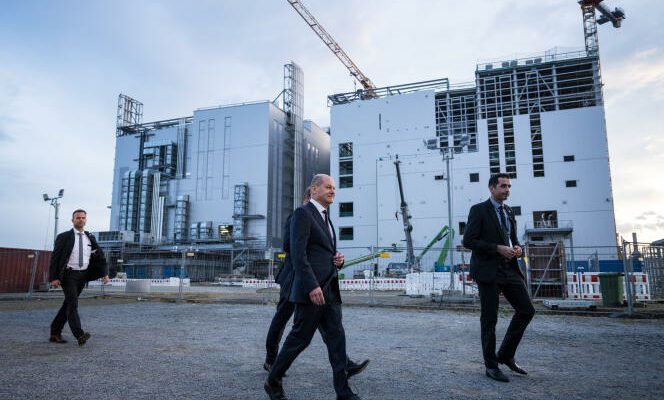For the past few days, there has been a wave of cautious optimism in German economic circles. After the “Zeitenwende”, the name given to the “historic turning point” that the Russian aggression in Ukraine constituted in German foreign and commercial policy, many were counting on a very large economic shock, which would mark the beginning of a strong deindustrialization of Germany . However, in the chiaroscuro of the transition to the new year, the picture that is emerging is far from being as gloomy as anticipated.
Most indicators show that the German economy has, for the moment, withstood the crisis rather well. The Ifo index of bosses’ morale, published at the end of December 2022, rose again for the third time in a row. That of the KfW bank, which surveys medium-sized companies, also showed an upturn in December.
The Kiel Institute anticipates slight growth of 0.3% in 2023, and no longer a recession of 0.7%. “We are not experiencing a mega-recession, let alone a deindustrialisation of Germany”, underlines the government’s consulting economist, Ulrike Malmendier, in Handelsblatt, January 3.
The strongest shock obviously concerns the most energy-consuming industries – chemicals, metal, glass, cement, ceramics, paper. According to data from the statistics institute, they experienced a massive contraction in their production in one year: − 12.6% between October 2021 and October 2022.
The most significant decline concerns chemicals, the third German industrial sector, whose production fell by 20%. This stall is largely due to a reorganization: the chemical giant BASF, for example, stopped producing ammonia in Europe, a basic gaseous compound in chemistry (NH3). It imports it from abroad, but has not stopped producing other molecules with higher added value.
“Industrial fetishism”
Not all companies will be able to adapt in this way. For some activities, such as foundries, the long-term competitiveness of Germany as a production site seems compromised, say most experts. Energy-intensive industries account for 15% of total German industrial production, which itself covers 25% of gross domestic product.
Martin Brudermüller, the boss of BASF, announced in November 2022 his intention to reduce ” permanently “ its production capacities in Europe and continues to bet on China. In the same branch, some groups like Lanxess intend to invest in the United States, where gas is now three times cheaper than on this side of the Atlantic.
You have 51.62% of this article left to read. The following is for subscribers only.
